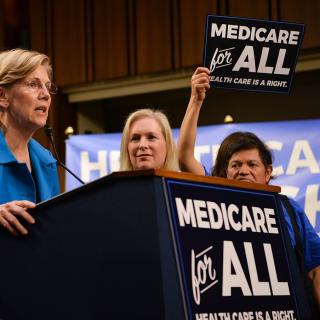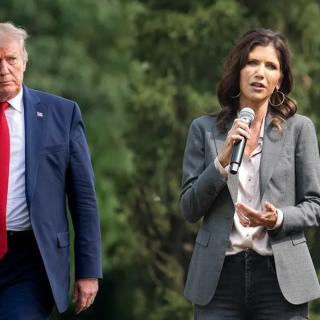Advertisement
Many thought leaders now recognize that incremental reforms, although useful, are not sufficient to propel the radical changes needed to transition to a future that avoids catastrophic climate chaos. As noted earlier, the poly crises we now face — income inequality, global warming, nuclear war, etc. are symptoms of the economic globalization that has emerged in the last 50 years. Corporate oligarchies now effectively “rule the world” with international trade agreements designed to manage the neoliberal order.
The U.S. remains heir to the British Empire in the unipolar world that followed the fall of the Soviet Union. However, recent decades have seen the rise of oligarchies in China, Russia, Brazil and India, creating competition with the de facto American empire. The resulting multi polar world is already threatening the neoconservative foreign policies of the U.S., as evidenced by the U.S. (and NATO’s) proxy war with Russia in Ukraine, and the pivot to China, causing tensions in east Asia over U.S. support for Taiwan. Chinese air and naval expansions, nuclear threats from North Korea, and military build ups by Japan and South Korean allies have moved the “nuclear clock” to a foreboding 90 seconds.
Perhaps equally disturbing, the neoliberal economic order is closely tied to the neoconservative foreign policies that serve to protect the free flow of goods and services in all parts of the world. Joe Biden’s over simplified narrative of “Democracy Versus Autocracy” is not much different from George W. Bush’s “Axis of Evil” concocted by Dick Cheney, Donald Rumsfeld, Paul Wolfowitz, and Condoleezza Rice. While the mainstream media in the U.S. echoes the administration’s concern that threats to U.S. hegemony from Russia and China require military preparedness, there are numerous voices in the independent media now challenging this narrative.
Jeffrey Sachs, for example, a world-renowned economist and director of the Center for Sustainable Development at Columbia University, has been a leading critic of the U.S. role in the Ukraine war, including his recognition of Seymour Hersh’s report that the U.S. blew up Russia’s Nord Stream Pipelines to Europe in order to damage Russia beyond the sanctions. Both Sachs and Hersh have been excluded from the major corporate media. Sachs has spoken out on numerous interviews published on YouTube, and Hersh, formerly a reporter for the NY Times, resorted to publishing his work on Substack. Medea Benjamin, co-founder of the women-led peace group CODEPINK, recently published her book, War in Ukraine: Making Sense of a Senseless Conflict, and made numerous presentations on a book tour, spreading critical awareness of the U.S. role. Historian John Mearsheimer, an early critic of the Ukraine War based on a nuanced understanding of Russian history, is yet another critical voice that has had to rely on independent media, notably Amy Goodman’s Democracy Now!, to voice his criticism. These critics, and others like filmmaker Oliver Stone, are breaking through the groupthink in the U.S. (and of course Russia) that fears democratic public debate at a time when the international order is undergoing structural change.
When faced with such crises there is opportunity to be found in emerging alternatives. As cracks in the present world order show themselves, that is precisely when it becomes possible to embrace needed changes capable of supplanting the old order and creating a new one. The globalization of the economy in its neoliberal form is the most formidable threat to any transition, made more so by the neoconservative foreign policies (and the military industrial arms industry) committed to preserving U.S. hegemony in the face of rising imperial ambitions of Russia and China.
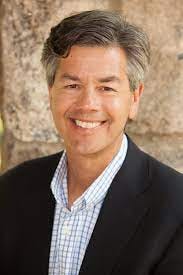 John Fullerton
John Fullerton
John Fullerton and a Layered Transition to Regenerative Economics
First, there are dozens of economists and at least some politicians who recognize the obvious faults of the neoliberal economic order. The absurd policies of economic growth on a finite planet, the failed trickle down economics since Reagan, Ayn Rand inspired anti-regulation/anti government intervention policies of Allen Greenspan, and the market failure to account for the externalities caused by destroying ecosystems for profit while the planet warms.
Clearly the system we have created presents a huge obstacle to any transition and there is good evidence that until there is an economic collapse or significant breakdown, we are not likely to make the systemic changes needed. That said, John Fullerton, a recovering Wall Street investment banker — 20 years at J.P. Morgan Chase — is now a leading proponent of regenerative economics. Most interestingly, he believes that a layered transition to a new Economy that operates as a subset of the Environment, is not only possible but is in fact underway.
Industrial agriculture is also challenged by reports, including from the World Health Organization that only a return to localized farming is capable of sustainably “feeding the world,” a claim that was used to justify industrial farming to implement the Green Revolution in the 1970s and 80s. In reality, a billion or more people are food insecure and 60–70% of the world is still fed by small farms. Embarrassed by these failures, it is possible that a future Congress could pass a Farm Bill that removes the $38 billion in subsidies now allocated to factory farming and transfer those dollars to small farms who serve local communities. At present, only about 0.4% of the current Farm Bill supports growing fruits and vegetables.
Many more such practical examples could be cited to begin the process of breaking the hold of monopoly industries. Since the Reagan Revolution, the U.S. simply stopped enforcing anti-trust laws, though there is a growing recognition that monopoly practices, long touted for greater efficiency, are actually costing consumers in every sector of the economy. Thom Hartmann reports that every U.S. taxpayer is effectively “taxed” $5000 by paying more for monopoly services like Internet, Health Care, Pharmaceutical Drugs, Banking… even Entertainment (Ticketmaster), frames for glasses, bottled water, on and on.
These are all common sense reforms that are popular with American people according to Gallup and other polls. They illustrate that taken together, over the next decade, real structural changes could move the economy toward sustainability and eventually regeneration. An essential part of such policy changes must include the elimination of poverty along the lines proposed by William Barber and the Poor Peoples Campaign. The recent book by Matthew Desmond, Poverty, By America, further documents and explains how economic justice can be achieved.
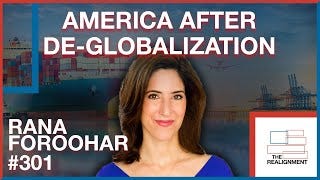 Rana Faroohar
Rana Faroohar
Rana Faroohar: Localization and the Transition to a New World Order.
If the structural changes envisioned in economics and foreign policy are implemented in the next decade, localization will be the key to successful transitions. By strengthening emerging trends in local communities through existing state, regional and federal government policies, including strategic public/private collaborations and investments, a mosaic of ecological cultures and civilizations could comprise a genuinely new world order.
Rana Faroohar, author, journalist, business columnist, and associate editor at the Financial Times, published last year (2022) a remarkable harbinger of the future titled Homecoming: The Path to Prosperity in a Post-Global World. She makes “A sweeping case that a new age of economic localization will reunite place and prosperity, putting an end to the last half century of globalization — by one of the preeminent economic journalists writing today. <link>
John Fullerton, David Korten, Stephanie Kelton, Jeffrey Sachs, and Rana Faroohar represent important voices signaling that a sustainable, even regenerative transition to a livable future is still possible. Indeed, to repeat these oft-quoted lines:
“Another world is not only possible, she is on her way. On a quiet day, I can hear her breathing.” ~ Arundhati Roy
I will end with quotes from leading edge visionaries Charles Eisenstein and Paul Hawken.
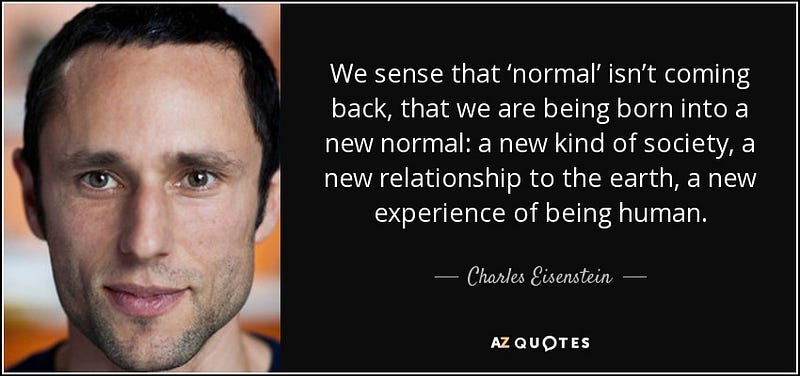
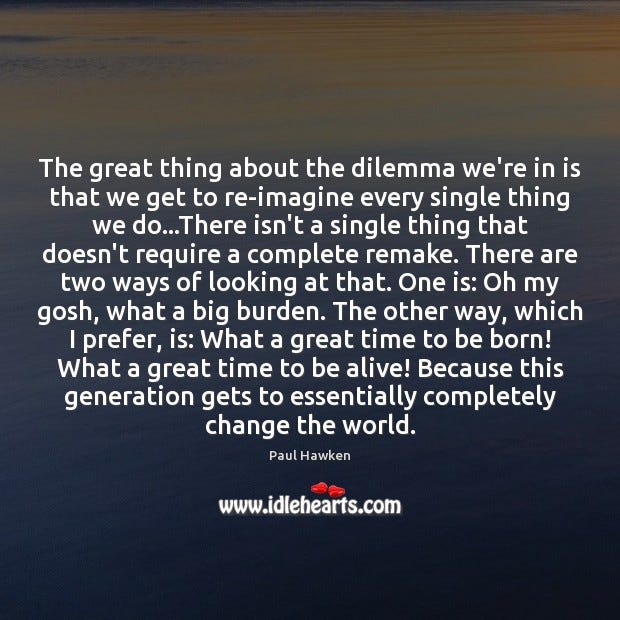
May we all participate in co-creating local, inter-networked, ecological futures. Thanks for reading.


